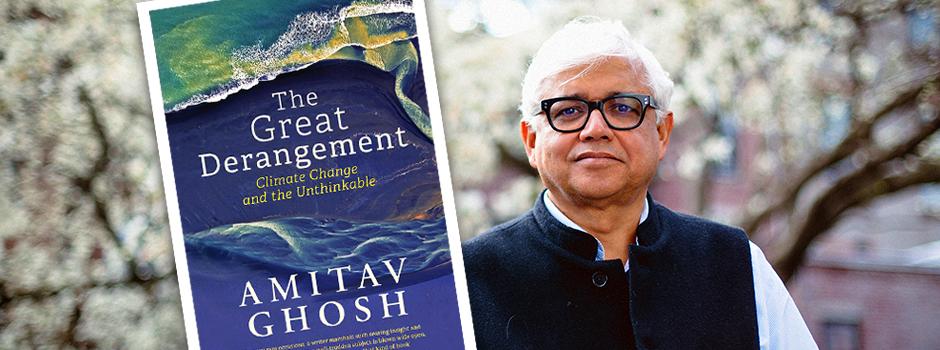Leading Indian writer Amitav Ghosh captivated a packed NYU Shanghai auditorium of scholars, students and loyal readers on Monday with sagacious illustration of the global climate crisis, a major theme of his new book The Great Derangement: Climate Change and the Unthinkable.
In a keynote address for the Inaugural Annual Conference of NYU Shanghai’s Center for Global Asia (CGA), Ghosh highlighted the roles of Asia and Western imperialism in precipitating climate change while reviewing how the modern history of two neighboring Asian powers, India and China, has contributed to the crisis.
“Strangely, the implications (of the continent of Asia) are rarely reckoned with. This may be because the discourse around the Anthropocene and climate matters remains largely Eurocentric,” said Ghosh, whose award-winning books, including the famous Ibis Trilogy, have already been translated into more than 20 languages.
In terms of climate issues, “no strategy will work globally unless it works also in Asia, and is broadly accepted by the large Asian population,” he said. As a Distinguished Visiting Scholar of the CGA, Ghosh will remain on campus to meet students and faculty until early September.

Aside from Ghosh’s inviting talk, the CGA Annual Conference also summoned some 30 Chinese and international researchers to NYU Shanghai, where they transformed the three-day gathering into a series of intense panel discussions on China-India connections--the main theme of this year’s conference. The research presented connected a variety of disciplines, such as literature, history, sociology and cultural study.
China and India have always been culturally connected, said Zhang Ke, Assistant Professor of History at Fudan University, in his presentation. “There are two images of India from the late Qing Dynasty (1636-1911)--one created by Western missionaries featuring positive improvements of social customs and political institutions, and the other by Chinese intellectuals who mostly narrated the ‘peril’ of India. These helped shatter the previous China-centric worldview, and the national consciousness of a modern China started to burgeon subsequently,” Zhang said.



